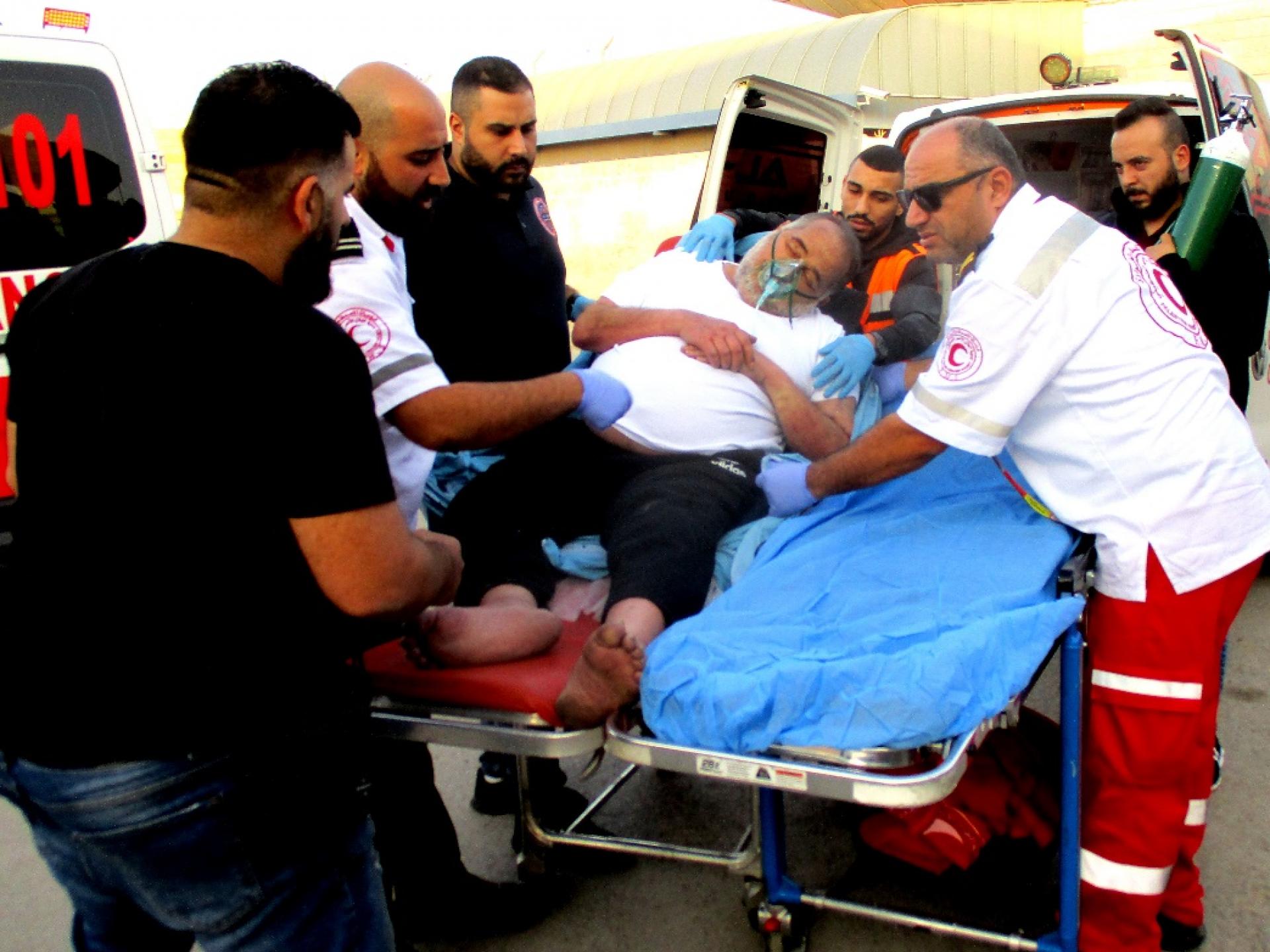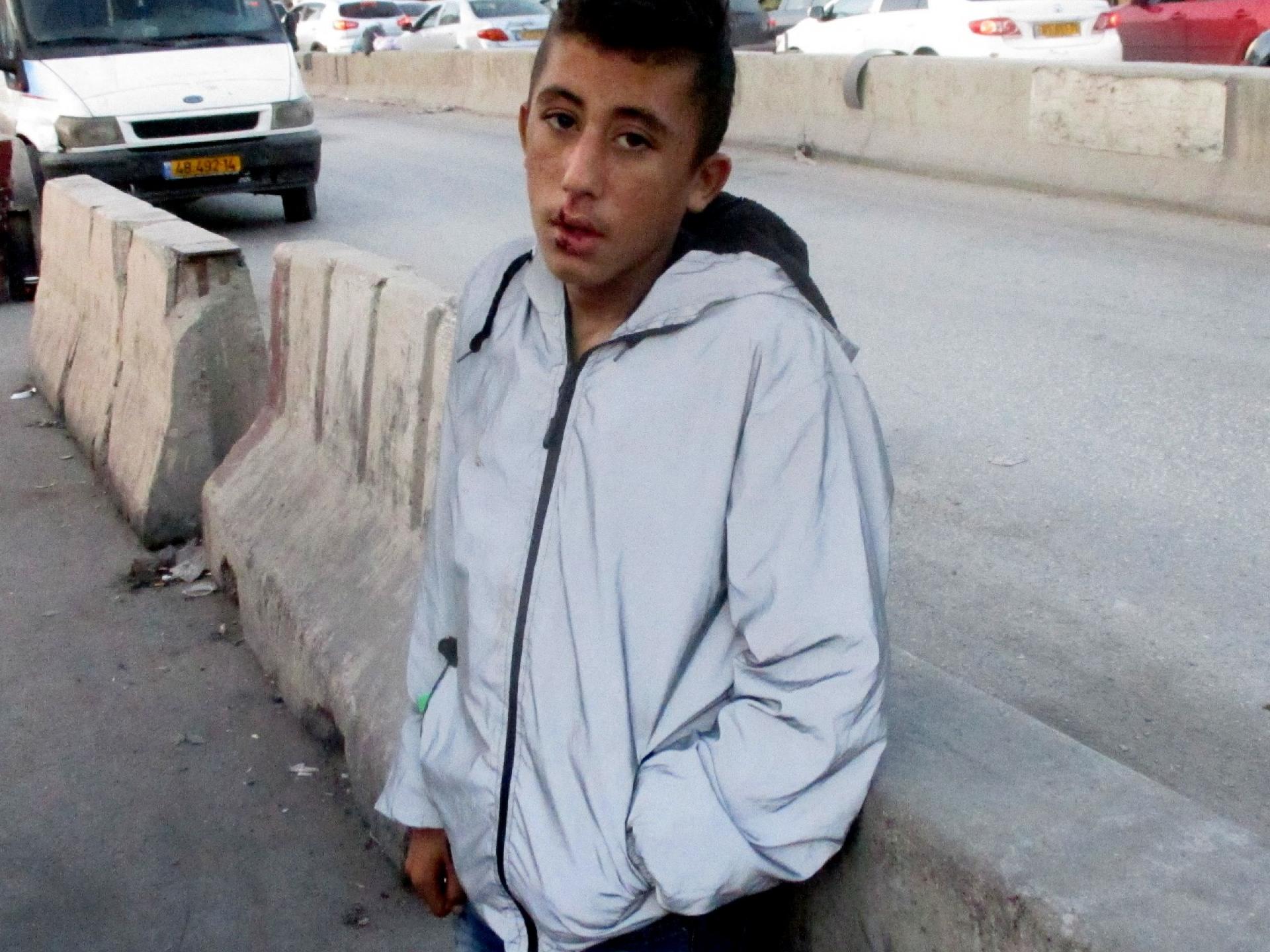Qalandiya - despite illness and urgent treatment regulations prevail.
“See, for you are not alone”
An ambulance coming from the Erez Crossing (to the Gaza Strip) was parked at the site designated for the back-to-back procedure and waited for its counterpart from the West Bank. Inside waited “a very very sick man”, according to the driver. “He is going to Nablus for an open heart surgery”. But when the Nablus ambulance arrived, no one hurried to transfer the patient for here, a place controlled by guns, preference and priority are given to procedures and not the patient’s condition.
First one had to be certain that the man is up to all the criteria and all his documents are in order.
One could only imagine the mental and physical prices paid for the not-at-all obvious privilege of receiving an exit permit from the Gaza Strip – where, because of the many years of siege and limitations there is neither the capability nor the equipment needed for his treatment.
-
If the patient is inspected when exiting the Strip, why is he subjected to the same inspections here? I asked the girl-soldier who supervised the procedures by the book.
-
I don’t understand what you’re asking, was her answer.
I gave in. I didn’t insist.
At the same time, an ambulance from the West Bank arrived at the same site and waited and waited.
When the ambulance arrived from Jerusalem, when Wassim of the Red Crescent understood the patient’s condition, he wouldn’t stop to chat as usual, and only muttered to me: “He must get to his dialysis treatment urgently”. That didn’t happen, despite illness priorities and urgent treatment.
Many hands raised the man and carried him from one stretcher to another, many hands carried his stretcher from one ambulance to another for they had to be changed – stretchers, ambulances, even the oxygen tank that keeps the man alive had to be chanced.
Only when inspections and stretcher and ambulance changes were over and doors closed, the ambulance got on its way to the Augusta Victoria Hospital, sirens blaring.
**
In front of the refugee camp I noticed a child I hadn’t met before, straggling behind the vender children. The child walked along, as if seeking something that doesn’t exist.
I approached him and discovered a child hungering for attention, glad to have someone to talk with, and did not cringe at the hand held out to stroke his hair and speak softly.
His looks suggested he was a battered child, but an acquaintance explained that his lips were the victims of a virus.
I looked at him and at all the other children and a line from Avot Yeshurun’s poem: “See for you are not alone”.


